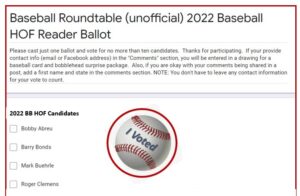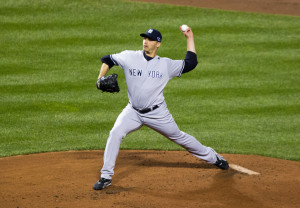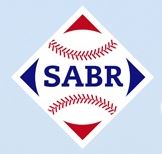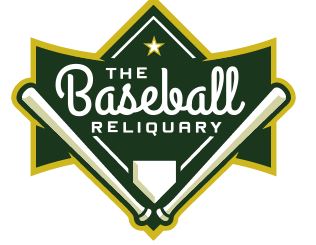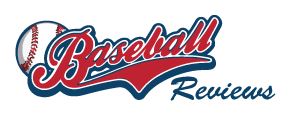Baseball Roundtable’s 2022 Hall of Fame Debate Season is officially open! The Baseball Writers Association of America (BBWAA) 2022 Hall of Fame ballots were distributed last week and the results will be announced in January, with the honorees inducted on July 24 This year’s traditional ballot includes 17 holdovers from last year, along with 13 newcomers.
In this post, BBRT will share:
- Predictions on the 2021 BBWAA voting;
- BBRT’s ballot (if I had one);
- A deep look into all the candidates on the ballot;
- A link to BBRT’s unofficial fan ballot – please take a few minutes to follow the link and cast your votes.
Note: For a look at the Early Baseball Era (veterans) Committee candidates, click here. For the Golden Days Era Committee candidates, click here.
To skip the post (although I hope you will read on) and go right to the Fan Ballot, click here.
––PARTICIPATE IN BASEBALL ROUNDTABLE’S 2022 FANS’ HALL OF FAME BALLOT—
Baseball Roundtable is once again conducting an unofficial fan ballot – to cast your vote(s), click here. Remember, you can vote for up to ten of the nominees for 2022 induction. If you want to read through the nominees’ bios first, there is another link to the BBRT Fan Ballot following the bios (near the end of this post). BBRT will be providing updates on the fan balloting, as well as a post-election comparison of fan votes as compared to the final BBWAA results. Voting on the BBRT Fan Ballot will remain open until December 28, 2021.
Also, if you leave your email address in the comments section at the end of the ballot, you will be entered in a bobblehead and baseball card “surprise-prize” drawing.
Again, to cast your votes, click here.
As you consider this year’s slate of candidates, BBRT would stress that all the players on the ballot – even those who remain for only one voting cycle – deserve recognition. To rise to the major leagues, last ten years and make it past the Hall of Fame Screening Committee is a significant accomplishment in itself. In fact, the annual ballot release is a highlight for Baseball Roundtable, as it provides a chance to acknowledge the accomplishments of all the candidates – not just the favorites for election. A review of the ballot gives us the opportunity to honor Mike Buehrle’s n0-hitter and perfect game; Carl Crawford’s 480 stolen bases; Billy Wagner’s 400 saves; Torii Hunter’s nine Gold Gloves; the MVP seasons of Justin Morneau and Jimmy Rollins; Prince Fielders 50–HR season; and more.
Now on to the official 2022 Baseball Hall of Fame election process itself – and, then, a look at the players on the ballot for 2021.
BASEBALL HALL OF FAME ELIGIBILITY/CRITERIA FOR ELECTION
The basic rules for eligibility are that a player must have played at least ten seasons and be retired for at least five years. In addition, the player must be approved for the ballot by the Hall of Fame Screening Committee.
A player can remain on the ballot for up to ten years, but must receive at least five percent of the vote in the preceding year’s ballot to remain on the ballot. Each voter can vote for up to ten candidates. Election requires that a player be named on at least 75 percent of the ballots cast.
The criteria for election: “Voting shall be based upon the player’s record, playing ability, integrity, sportsmanship, character, and contributions to the team(s) on which the player played.”
A couple of preliminary comments.
- The 2022 ballot includes four players in their final year of eligibility – a group that generally gains some additional momentum. However, this year’s “final ballot” group – Barry Bonds, Roger Clemens, Sammy Sosa and Curt Schilling – brings with it some controversy (PEDs, politics, personality and even a denied request to be removed from the ballot). How all of that affect voting will be interesting to watch.
- Support for the two strongest newcomers on the ballot – Alex Rodriguez and David Ortiz – may also be affected by concerns that go beyond what are clearly Hall of Fame numbers.
Now, let’s take a look at whom BBRT predicts will be elected by the BBWAA; how BBRT would vote if I had a ballot; and the bios of these year’s candidates.
—–Baseball Roundtable’s Hall of Fame Predictions for 2022—–
First, the Roundtable’s Track Record …
Last November, I noted that Baseball Roundtable was “not optimistic about balloting” producing any new HOF members – giving Curt Schilling the best chance of election. No one was elected, while Schilling did lead all candidates with 71.1 percent of the vote. In November 2020, Baseball Roundtable correctly predicted the election of Derek Jeter and Larry Walker – and anticipated “dark horse” candidate Curt Schilling would fall closer to 70 percent than 75. Jeter and Walker were elected and Schilling fell short (at 70 percent). Three years years ago, BBRT projected the election of Mariano Rivera and Edgar Martinez and listed Mike Mussina and Roy Halladay as “dark horse” candidates with a chance to generate the needed 75 percent support. It was a bit of a swing and miss (maybe a foul ball), as all four were elected. Four years ago, BBRT predicted the election of Chipper Jones, Jim Thome, Vlad Guerrero and Trevor Hoffman (with Mike Mussina as a “dark horse” candidate). Jones, Thome, Guerrero and Hoffman made it, with Mussina garnering 64.5 percent (sixth-most).
2022 Prediction …
For 2021, BBRT is again “not optimistic” about the balloting. I anticipate a second consecutive shutout. The best chance for election this year: David Ortiz and Alex Rodriguez.
Dark Horse Possibilities ….
1. David Ortiz. Ortiz’ 541 home runs and 1,768 RBI, plus his post-season performance, clearly are Hall-worthy (more on Ortiz in the bio section). I put him at the top of the “dark horse” list for a couple of reasons: His positive personality and the fact that he appears more lightly brushed by the PED-controversey. Ortiz did not fail a drug test after 2004, but a positive result was noted in a “leaked” 2003 survey test. In 2016, when asked about Ortiz’ 2003 test results, MLB Commissioner Rob Manfred said of Ortiz “… there were legitimate scientific questions about whether or not those (some of the test results) were truly positive.” I think Ortiz will be treated well on the first ballot (55-65%), but there will be enough BBWAA holdouts – some on the basis of PED suspicions, others who sets a higher standard for first-ballot candidates and a few with a lingering negative bias against designated hitters- to preclude the necessary 75 percent.
2. Curt Schilling. Schilling’s stats (detail in the bio section) were strong enough to garner him 70 percent support in 2020 and 71.1 percent last year. It does appear his political and social views and the manner in which he expresses them have been obstacles in his path to the Hall. He didn’t do himself any favors by requesting to be removed from the ballot and indicating he would “not allow a group of morally bankrupt frauds another year to lie about my life.” The Hall denied his request and BBRT believes this could go one of three ways: 1) The BBWAA voters could see Schilling’s outburst as just “Curt being Curt” and the traditional final-year boost could put him in the Hall; 2) Reverse psychology could kick in and the BBWAA voters could call Schilling’s bluff and elect him (if only to see how he reacts); 3) The BBWAA voters could choose to deny Schilling one more time for past reasons and/or his more recent request and criticism. I’m betting on option three and a slight decline in Schilling’s support.
3. (tie) Barry Bonds, Roger Clemens. Bonds and Clemens – both in their tenth and final year on the ballot – each tracked at just shy of 62 percent in last year’s voting. While they clearly have Hall of Fame numbers, the PED-specter has shaped their candidacies. The question for 2022 is whether an adequate number of BBWAA voters think the pair have been punished enough and are ready to add their support. I anticipate both Bonds and Clemens falling just shy of 70 percent, and the BBWAA passing this issue on to the ERA ( Veterans) Committee (where Bonds and Clemens will eventually gain induction). If the writers are ready to “forget and forgive,” we could see a 2022 calls to Bonds and Clemens.
5. Alex Rodriguez. Rodriguez clearly has Hall of Fame on-the-field numbers (see bio section), but like Bonds and Clemens is carrying PED “baggage” into his HOF candidacy. I would have put A-Rod into a tie with Bonds and Clemens except that I am not convinced the BBWAA will want to make a player who has served a one-year suspension a first-ballot inductee. Rodriguez, however, ha s worked to restore his reputation and 55-60 percent support in year one would not surprise me.
Let’s move on to BBRT’s hypothetical – if I had one – ballot and bios of the players I would vote for; followed by a look at the remainder of the 2021 candidates.
Side note: You will not find those most clearly caught up in the PED-controversy on my ballot. While I think the best of them will eventually be elected/inducted, if I had a ballot, I’d prefer they made the 75 percent without my vote. As I noted in my predictions, I think it’s likely the BBWAA will “punt” on these players and “kick the ball”down the road to the Era Committee.
So, here is BBRT’s Hall of Fame Ballot – again, if I had one – with the players listed in BBRT’s order of preference.
— PLAYERS WHO WOULD GET BBRT’S VOTE —
David Ortiz – Designated Hitter/First Base, 1992-2016 … First year on the ballot.

Photo: Cathy T from Washington, DC area, CC BY 2.0 <https://creativecommons.org/licenses/by/2.0>, via Wikimedia Commons
MLB Commissioners Rob Manfred’s comments about the possible inaccuracy of David Ortiz’s 2003 PED test, MLB’s assurance that the 2003 “survey” test would not result in disciplinary action and the fact that Ortiz did not test positive after 2003 put Ortiz (at least in Baseball Roundtable’s view) in a different position than a number of other candidates painted by the PED brush. So, let’s look at his HOF resume. In 20 MLB seasons, Ortiz put up a .286-541-1,768 stat line. Career-wise, he ranks in the MLB top fifty (among players with a qualifying number of plate appearances) all-time in home runs(17th); RBI (23rd); doubles (623-12th); (extra-base hits-1,192-eighth); total bases (4,765-32nd); slugging percentage (.552-26th); walks (1,319-41st); and intentional walks (209-16th). Ortiz collected 2,72 base hits, hitting .300 or better in six qualifying seasons
The ten-time All Star led the AL in home runs once (54 in 2006) and hit 30 or more long balls in nine campaigns; led in RBI twice and topped 100 in nine seasons; led the league in total bases once; and on-base and slugging percentage once each. Ortiz played in 85 post-season games (.289-17-61) and was the MVP of the 2004 AL Championship Series and 2013 World Series). With the Red Sox, he built a reputation as a team leader, clutch hitter and ambassador for baseball and Boston.
In his final season as a player (2016), the 40-year-old David Ortiz hit .315, with 38 home runs and league-leading 127 RBI. He led MLB in doubles (48); extra-base hits (87); and slugging percentage at .620.
Ortiz played for played for the Twins (1997-2002) and Red Sox (2003-2016).
David Ortiz’ Best Season: With the Red Sox in 2006, Ortiz hit .287, leading the league in home runs (54); RBI (137); walks (119); and total bases (355). He also scored 115 runs that campaign.
Ortiz has the numbers to earn a place in the HOF. Still, in his first year on the ballot, PED suspicions (whether warranted or not) and the fact that he spent the bulk of his time as a DH may work against him. Still, he’d gets BBRT’s vote and should eventually make the Hall (perhaps even this year).
Jeff Kent – (Second Base/Third Base/First Base, 1992-2008) … Ninth year on the ballot, 32.4 percent last year.
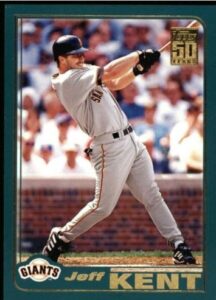 BBRT has long believed Jeff Kent is a deserving candidate, but he has not been getting much support from the writers. Kent holds the all-time MLB record for home runs by a second baseman (351 of his 377 career round trippers were hit while in the lineup at second base). He has a healthy .290 career batting average; his 1,518 RBI are 54th all time; and his 560 doubles 30th. His 984 extra base hits are 43rd all-time.
BBRT has long believed Jeff Kent is a deserving candidate, but he has not been getting much support from the writers. Kent holds the all-time MLB record for home runs by a second baseman (351 of his 377 career round trippers were hit while in the lineup at second base). He has a healthy .290 career batting average; his 1,518 RBI are 54th all time; and his 560 doubles 30th. His 984 extra base hits are 43rd all-time.
Kent was a five-time All Star and the 2000 NL MVP. As primarily a middle infielder, he hit 20 or more home runs in 12 seasons (a high of 37 in 2007) at a time when middle infielders were not especially known for power. Kent topped 100 RBI eight times. He hit .276, with nine home runs and 23 RBI in 49 post-season games.
Running with the Big Boys …
Jeff Kent has more career runs batted in (1,509 in 17 seasons) than such noted Hall of Famers (who played a comparable number of seasons) as Mickey Mantle (1,508 in 18 seasons), Billy Williams (1,475 in 18 seasons), Eddie Mathews 1,453 in 17 seasons), Duke Snider (1,333 in 18 seasons) and Orlando Cepeda (1,365 in 17 seasons). Not bad for a middle infielder.
Kent played for the Blue Jays (1992), Mets (1992-1996), Indians (1996), Giants (1997-2002), Astros (2003-2004) and Dodgers (2005-2008).
Jeff Kent’s Best Season: With the Giants in 2000, Kent put up these stats – 159 games; 196 hits; .334 average; 33 home runs; 125 RBI; 114 runs; 12 steals. His performance earned him the NL MVP Award.
Kent has the credentials, but BBRT expects the writers will keep him on the bench – a couple of Gold Gloves, at this traditionally defense-oriented position, would have really helped his case. In BBRT’s opinion, this is a true HOF “snub.”
_________
Todd Helton – (First Base, 1997-2013) … Fourth year on the ballot, 44.9 percent last year.
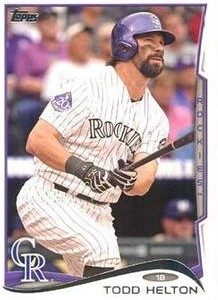 Todd Helton moved from 16.5 percent to 29.2 percent to 44.9 percent over his first three years on the ballot. I expect he will continue to gain ground and would not be surprised to see hims climb to between 55 and 60 percent this year. Still, he is hampered by the fact that he spent his entire 17-year career with the Rockies (playing half his games in hitter-friendly Coors field). Helton, who put up a .316 career average, hit .345 at home and .287 on the road. Despite that home/road split, Helton’s body of work deserves HOF consideration.
Todd Helton moved from 16.5 percent to 29.2 percent to 44.9 percent over his first three years on the ballot. I expect he will continue to gain ground and would not be surprised to see hims climb to between 55 and 60 percent this year. Still, he is hampered by the fact that he spent his entire 17-year career with the Rockies (playing half his games in hitter-friendly Coors field). Helton, who put up a .316 career average, hit .345 at home and .287 on the road. Despite that home/road split, Helton’s body of work deserves HOF consideration.
Helton was a five-time All Star, three-time Gold Glover and four-time Silver Slugger. He hit over .300 in 12 seasons – and won the NL batting crown in 2000 with a .372 average. His 59 doubles that season are the seventh-most all-time. Helton drove in 100 or more runs in five seasons and scored in triple figures six times. His 1,335 walks (37th all-time) indicate the respect he earned at the plate. Helton also ranks fifth in games played at first base, second in career assists at the position, 13th in putouts and third in double plays.
The Denver 400
Todd Helton is one of only 18 players to reach 400 or more total bases in a season – and one of only seven players to have multiple 400+ total base campaigns. He is also the only player to collect 100 extra-base hits in two consecutive seasons (2000-2001).
Todd Helton’s Best Season: In 2000, Helton won the NL batting crown with a .372 average – and also led the league in base hits (216), doubles (59), RBI (147), on-base percentage (.463), slugging percentage (.698) and total bases (405). He also scored 138 runs and hit 42 home runs.
Helton will continue to move up in support – he’s just not likely to overcome the Coors Field-bias in the short-term future. He gets BBRT’s vote (as he has in the past).
__________
Omar Vizquel – (Shortstop/Third Base, 1989-2012) … Fifth year on the ballot, 49.1 percent last year.
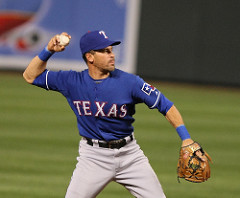
Photo by Keith Allison 
Omar Vizquel got off to a good start toward a HOF plaque, grabbing 37 percent support on his first-ballot year, moving up to 42.8 percent in his second year and 52.6 percent in his third year. His support appears to have plateaued, dropping to 49.1 percent in 2021. Vizquel once again earns BBRT’s vote. If he does eventually make it into the HOF it will be more with his glove (eleven Gold Gloves) than his bat. However, voters should be mindful of the fact that he finished his 24-season MLB career just 123 hits short of that milestone 3,000 safeties.
Vizquel delivered premier defense to the Mariners (1989-1993), Indians (1994-2004), Giants (2005-2008), Rangers (2009), White Sox (2010-2011) and Blue Jays (2012). He was a three-time All Star – and put together a string of nine straight Gold Gloves at shortstop (1993-2001).
Sacrificing for the Team
Omar Vizquel led his league in sacrifice bunts four times.
In the field, Vizquel has the highest career fielding percentage (.9847) among shortstops with at least 500 games at the position. Vizquel is also the all-time leader among shortstops in double plays (1,734), ranks third at the position for career assists and 11th in putouts. He shares the record (with Cal Ripken, Jr.) for the fewest errors by a shortstop in a season of at least 150 games played (three).
On offense, Vizquel put up a serviceable .272 career average, with 80 home runs, 951 RBI and 1,445 runs scored. The 1,445 runs put him in the top 100 players all-time (83rd); while his 2,877 hits put him in the top 50 (44th and fourth all-time among switch-hitters). He also swiped 404 bases – topping twenty steals eight times (a high of 42 in 1999) – putting him at number-72 on the all-time list. Vizquel played in 57 post-season games, hitting .250-0-20.
Omar Vizquel’s Best Season: In 1999, with the Indians, Vizquel hit a surprising .333, with five home runs, 66 RBI, 112 runs scored and 42 stolen bases – and, of course, won a Gold Glove at shortstop.
Vizquel would get BBRT’s vote, but the BBWAA likely will make him wait. I do feel, given this year’s ballot, he will improve on his 49.1 percent showing of a year ago.
__________
Billy Wagner – (LHP 1995-2010) … Eighth year on the ballot, 46.4 percent last year.
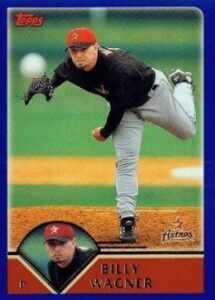 Billy Wagner made a nice jump in support last year – going from 31.7 percent to 46.4 percent. While he could (should) continue to make progress, each incremental point will likely get harder as he moves up the ladder. Wagner played for the Astros (1995-2003), Phillies (2004-2005), Mets (2006-2009), Red Sox (2009) and Braves (2010). Wagner was a seven-time All Star, who amassed 422 saves (sixth all-time) in a 16-season MLB career. He had nine seasons of 30 or more saves; a career ERA of 2.31; 1,196 career strikeouts in 903 innings; and 47-40 won-lost record.
Billy Wagner made a nice jump in support last year – going from 31.7 percent to 46.4 percent. While he could (should) continue to make progress, each incremental point will likely get harder as he moves up the ladder. Wagner played for the Astros (1995-2003), Phillies (2004-2005), Mets (2006-2009), Red Sox (2009) and Braves (2010). Wagner was a seven-time All Star, who amassed 422 saves (sixth all-time) in a 16-season MLB career. He had nine seasons of 30 or more saves; a career ERA of 2.31; 1,196 career strikeouts in 903 innings; and 47-40 won-lost record.
Whiff-and-Poof
In 1992, playing for Ferrum College, Billy Wagner set an NCAA record for strikeouts per nine innings in a season at 19.3.
Billy Wagner’s Best Season: In 2003, Wagner went 1-4, 1.78 for the Astros, saving 44 games and fanning 105 batters in 86 innings.
BBWAA voters have been very demanding of relievers (although the recent induction of Mariano Rivera and Trevor Hoffman may be a good sign – but they, of course, both had 600+ saves). It also helps that Lee Smith (478 saves) was elected by the Today’s Game Committee in 2019. BBRT thinks Wagner belongs in the Hall (based on his 400+ saves) – and hopes that momentum continues to build, but 75 percent is still a long way off. I’d like to see Wagner at least jump past the 50 percent mark. He gets my vote.
__________
Andy Pettitte – (LHP/Starter, 1995-2010, 2012-13) … Fourth year on the ballot, 13.7 percent last year.
I had to think for a while on this one (and will probably get some push back from readers), largely because a major part of Andy Pettitte’s HOF resume was achieved in the post-season and there was some PED-controversey surrounding Pettitte. (Note: Pettitte admitted to using HGH while recovering from elbow surgery – a couple of years before the substance was banned. He took responsibility and apologized.)
Pettitte holds the MLB post-season marks for most wins (19 … versus 11 losses), innings pitched (276 2/3) and games started (44). His post-season accomplishments include a 3.81 career ERA, 183 strikeouts (fourth all-time) and the 2001 American League Championship series MVP Award.
Pettitte, however, was no slouch in the regular season (Yankees – 1995-2003, 2007-2010, 2012-13) and Astros (2004-06). He finished with 256 wins (153 losses) and a 3.85 ERA. His 256 victories puts him in the top 50 all time (42nd). Pettitte won 20 games in two seasons and 14 or more games 12 times – leading the AL with 21 wins in 1996. The three-time All Star struck out 2,448 batters (46th all-time) in 2,316 innings.
Ready, Willing and Able …
Andy Pettitte started 30 or more games in a season 12 times, leading his league three times (1997, 2006, 2007.)
Pettitte’s post-season numbers, plus 256 regular-season victories and the fact that he had 100+ more career wins than losses secure BBRT’s vote. He still has a long way to go with the BBWAA voters, however.
Andy Pettitte’s Best Season: In 1997, following a 21-8 campaign in 1996, Pettitte went 18-7, with a 2.88 ERA (fourth-best in the AL), leading the league in starts with 35, finishing third in innings pitched (240 1/3) and eighth in strikeouts (166).
__________
Bobby Abreu – (OF, 1996-2012, 2014) … Third Year on the ballot, 8.7 percent one year ago.
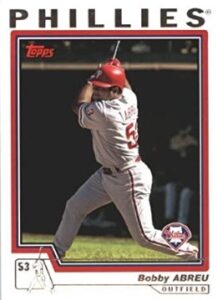 A solid .291 career hitter (2,470 base hits), Abreu hit .300 or better in six seasons. He hit 20 or more round trippers in 10 campaigns, stole 20 or more bases 12 times (a high of 40 in 2004), drove in 100 or more runs eight times and scored at least 100 runs eight times. Abreu also walked 1,476 times – including 100 or more free passes in eight straight seasons (1999-2006).
A solid .291 career hitter (2,470 base hits), Abreu hit .300 or better in six seasons. He hit 20 or more round trippers in 10 campaigns, stole 20 or more bases 12 times (a high of 40 in 2004), drove in 100 or more runs eight times and scored at least 100 runs eight times. Abreu also walked 1,476 times – including 100 or more free passes in eight straight seasons (1999-2006).
In the Top 50 …
Bobby Abreu’s 1,476 walks are 20th all-time; his 574 doubles are 25th; his putouts as a RF are 12th; and his assists as a RF 28th.
Abreu played for the Astros (1996-97, Phillies (1999-2006), Yankees (2006-2008), Angels (2009-1012), Dodgers (2012) and Mets (2014).
In 20 post-season games, Abreu went 19-for-67 (.284), with one home runs and nine RBI.
Bobby Abreu’s Best Season: In 2004, as a Phillie, Abreu hit .301, with 30 home runs and 40 steals. An All Star that season, he also drove in 105 runs and scored 118.
Abreu’s 400 steals are an HOF plus, as his 30-40 season in 2004 and his eight campaigns with 100 or more RBI. Had he reached 300 home runs; it would have really boosted his status with the writers. He’s also hurt by the fact that he only made two All Star teams in his 18 seasons. Still, I have votes left and his body of work earns one of them.
Ryan Howard – (1B, 2204-2016) … First year on the ballot.
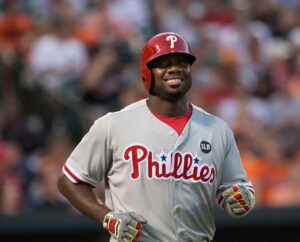
Photo: Keith Allison from Hanover, MD, USA, CC BY-SA 2.0 <https://creativecommons.org/licenses/by-sa/2.0>, via Wikimedia Commons
Let’s call this my “Sandy Koufax” vote. Do I expect Ryan Howard to make the Hall of Fame? That’s a bit of a long shot. Still, I would be inclined to cast a vote to help keep him on the ballot. The “Koufax Connection?” Hall of Famer Koufax was elected to the Hall with only 165 victories in a 12-season MLB career sadly cut short by arm issues. If you look at Koufax’ record, he was 36-40, 4.10 over his first six seasons and 129-47, 2.19 over his final six. (Did you know that Tommy John had just one fewer victory after his 1974 TJ Surgery – at age 31 – than Koufax had in his career?)
Did Ryan Howard have a period of dominance as great as Koufax (three Cy Young Awards in four seasons)? No, but like Koufax, Howard had several seasons of domination in a career derailed by injury. (Unlike Koufax, Howard’s HOF-worthy seasons came early in his career (he was able to play on after a series of injuries).
In 2005, Howard was the National League Rookie of the Year, hitting .288, with 22 home runs and 63 RBI in just 88 games. Then, from 2005 to 2011, Howard continued as one of the most feared hitters in the National League – and seemed on his way to a sure Hall of Fame career. Over those six seasons, he averaged .274, with 44 home runs, 133 RBI and 96 runs scored per campaign. (If you look at the first four of those seasons, he averaged .278-50-143, with 102 runs scored.) He was the National League MVP in 2006 and finished in the top five in NL MVP voting four times in six seasons. Then injuries began to take a toll – Achilles tendon in the 2011 NLDS (surgery); fractured big toe in 2012; torn meniscus (2013).In his final five seasons, he averaged .226, with 19 home runs and 66 RBI per campaign). Sort of Koufax in reverse.
For his career (12 seasons), Howard went .258-382-1,194. He led his league in home runs twice (hitting 45 or more four times); RBI three times, topping 100 six times and 135 four times; and total bases once, exceeding 300 four times. He also scored more than 100 runs in three seasons.
Ryan Howard reached 100 home runs in fewer career games than any other MLB player (325).
Howard played his entire career for the Phillies.
Ryan Howard’s Best Season: In 2006, Howard hit .313 and led MLB in home runs (58) and RBI (149) and total bases (383) – earning the NL MVP Award.
__________
So, with BBRT’s unofficial ballot covered, let’s look at the remainder of candidates – in alphabetical order. Note: Here you will find a host of players with solid (but perhaps not HOF-level) career numbers and accomplishments – as well as a few that remain on the sidelines for other reasons.
—–THE REST OF THE BALLOT—–
Barry Bonds – (Outfield, 1986-2007) … Tenth (final) year on the ballot, 61.8 percent a year ago.
Barry Bonds played for the Pirates (1986-1992) and the Giants (1993-2007). There is no doubt about Bond’s credentials – .298 average, 2,935 hits, MLB-record 762 home runs, 1,996 RBI, MLB-record 2,558 walks. He was also a 14-time All Star; 12-time Silver Slugger Award winner; his league’s MVP a record seven times; and an eight-time Gold Glove winner. In 2001, Bonds hit .328, with an MLB-record 73 home runs and 177 RBI. He drove in 100 or more runs 12 times and also scored 100 or more runs in a dozen seasons. And, I could go on and on.
Base Open? Makes Sense to Me …
Barry Bonds drew an MLB-record 688 intentional walks in his career. Second place? Albert Pujols, with 32. In 2004 alone, Bonds drew a record 120 intentional passes. He led his league in IBB 12 times.
Still, there are there is that pesky PED-controversey – an elephant in the room (and on the ballot) that I think will keep Bonds out of the Hall for now (there is the Era Committee in the future).
Barry Bonds’ Best Season: In 2001, Bonds crushed an all-time record 73 home runs, while hitting .328, driving in 137 runs, scoring 129 – all while drawing 177 walks.
_________
Mark Buehrle – (LHP, 2000-15) …. Second year on the ballot, 11 percent last year.
Mark Buehrle pitched in 15 MLB campaigns – White Sox (2000-11), Marlins (2012), Blue Jays (2013-15) – and threw 200 or more innings in all but his rookie and final seasons. Buehrle was a five-time All Star and put up a 214-160, 3.81 record, with 1,870 strikeouts in 3,283 1/3 innings. He twice led his league in starts and twice topped his league in innings pitched. He won ten or more games in 15 consecutive seasons and six times won 15 or more. Buehrle also four Gold Glove Awards.
Near-Perfect and Perfect
Mark Buehrle’s HOF resume is bolstered by a no-hitter tossed on April 18, 2007 – when his White Sox topped the Rangers 7-0 and Buehrle faced the minimum 27 batters. The only Texas’ base runner came on a fifth inning, one-out walk to Sammy Sosa, whom Buehrle then picked off first base. Buehrle notched eight strikeouts in the game, which was so-o-o very close to a “perfecto.”
Buehrle got his perfect game two years later (July 23, m 2009), when he recorded a clean slate in a 5-0 ChiSox win over the Rays. He fanned six in that one.
Mark Buehrle’s Best Season: In 2005, Buehrle went 16-8, 3.12 for the White Sox.
If he had 250 wins to go with the no-hitter, perfect game and four Gold Gloves, Buehrle would have had my vote. With just 214 wins, no Cy Young Award and no 20-win season, he’s short of what BBRT looks for in a Hall of Fame candidate. .
__________
Roger Clemens – (RHP, 1984-2007) … Tenth (final) year on the ballot, 61.6 percent last year.
Roger Clemens pitched in 24 MLB seasons; for the Red Sox (1984-1996), Blue Jays (1997-1998), Yankees (1999-2003, 2007) and Astros (2004-2006). Clemens has Hall-worthy stats: 354 wins (ninth all-time), 4,672 strikeouts (third all-time), an MLB-record seven Cy Young Awards and the 1986 AL MVP Award. The eleven-time All Star was a five-time 20-game winner (led the league in wins four times), seven-time ERA leader, five-time league leader in strikeouts and six-time leader in shutouts. He won the AL pitching Triple Crown (Wins/ERA/Strikeouts) three times. Clemens also has 12 post-season wins, with 173 strikeouts in 199 post-season innings.
Grab Some Bench, Buddy
Roger Clemens shares the record for strikeouts in a nine-inning game (20) with Kerry Wood and Max Scherzer. Clemens is the only pitcher to achieve 20 whiffs in a nine-inning game twice.
Roger Clemens’ Best Season: Lots to choose from here. Like 21-6, 1.93 in 1990 – or 1987, with a 20-9 record, 2.97 ERA, 18 complete games and seven shutouts. I take 1986. Clemens went 24-4. 2.48 and won both the Cy Young (his first) and AL MVP Awards for the Red Sox. He led the AL in wins, winning percentage (.857) and earned run average. He was fifth in innings pitched (254) and second in strikeouts (238).
Yes, he’s got the numbers (those listed and more), but the PED controversy seems to stand between him and the Hall. If the writers don’t vote him in this year, it’s likely the Era Committee will do it in the future. If the writers relent, I’d look for Bonds to join Clemens. I anticipate Clemens candidacy will pass on to the Era Committee.
________________
Carl Crawford – (OF. 2002-2016) … First year on the ballot.
Carl Crawford was considered on the the fastest – if not the fastest – players on the base paths in his peak years. In his first five full MLB seasons, he led the AL in steals four times averaging 53.6 thefts per season. His career total of 480 steals ranks 43rd all-time. Crawford also led the AL in triples four times and was a solid contact hitter (.290 career average and six seasons of .300 or better). He collected 1,931 hits, belted 136 home runs (a high of 19 in 2010) and scored 998 runs (100+ in three seasons) in 1,716 career games. Crawford was a four-time All Star and one-time Gold Glover. He ranks 15th all-time in putouts as a left fielder (3,182) and led his league in LF putouts four times.
MVP-MVP
Carl Crawford was the MVP of the 2009 MLB All Star Game, after robbing Brad Hawpe of a go-ahead home run in the seventh inning of a 4-3 AL win. A reserve, he also went one-for-three at the plate.
Crawford played for the Rays (2002-10), Red Sox (2011-12) and Dodgers (2013-16),
Carl Crawford Best Season: In 2007, Crawford hit a career-high .315, with 11 home runs, 80 RBI, 93 runs scored and 50 stolen bases.
The 480 steals and .290 average should get him enough support to stay on the ballot for 2023. More than one Gold Glove would have helped his ultimate case for the Hall.
__________________
Prince Fielder – (First Base, 2005-16) … First year on the ballot.
Prince Fielder was a power hitter (319 home runs), who could make contact (.283 career average – .290 or better in four seasons). He was also a workhorse, leading the league in games played four times and averaging 160 games per season from 2006 through 2013. Fielder led the league in home runs once (with 50 in 2007) and hit 30 or more home runs in six seasons). The six-time All Star had 1,028 career RBI, leading the NL with 141 for the Brewers in 2009 and topping 100 RBI in six campaigns. He also led the AL in walks once and intentional walks twice, Fielder played for the Brewers (20005-2011); Tigers (2009-13) and Rangers (2014-16).
It’s in the Genes
Prince Fielder and his father Cecil Fielder each hit exactly 319 regular-season home runs in their careers and each reached 50 home runs in one season – Cecil with 51 in 1990 and Prince with 50 in 2007).
Prince Fielder’s Best Season: Baseball Roundtable is looking at two possibilities here. In 2007, Fielder went .288-50-119, with 109 runs scored; while in 2009, he went .299-46-141, with 103 runs scored. As they say, six of one, half dozen of the other.
Fielder’s 50-HR seasons, 319 career long balls, coupled with the fact that he maintained a .283 average should get him enough support to stay on the ballot another year. Perhaps in the 10 percent range.
_____________________________
Tim Hudson, – (RHP. 1999-2015) … Second year on the ballot, 5.2 percent last year.
Tm Hudson pitched in 17 MLB seasons: A; s (1999-2004), Braves (2005-2013); and Giants (2014-15). He was a four-time All Star – making the All Star squad with the A’s, Braves and Giants. Hudson’s career mark was 222-133, 3.49, with 2,080 strikeouts in 3,126 2/3 innings pitched. He won 15 or more games in a season eight times, leading the AL in wins with 20 in 2000, his second MLB season. He led his league in games started twice, nine times starting 30+ games, and in shutouts twice.
A Two-way Player …
In 1997, Tim Hudson played in 65 games for Auburn University. As a pitcher he went 15-2, 2.97 and, as a hitter, he went .396-18-95. Appropriately, he was named SEC Player of the Year and was a consensus All-American. (He was also named All-SEC at both pitcher and outfield.)
Tim Hudson’s Best Season: In 2000, with the A’s, Hudson went 20-6, 4.14, leading the AL in wins and winning percentage (.769). Also, in the running is 2001, when he went 18-9, with a 34.37 ERA.
Nearly 100 more wins than losses deserve recognition, but it doesn’t seem likely Hudson will gain any traction this year – and may even fall off the ballot.
__________
Torii Hunter – (OF, 1997-2015) … Second year on the ballot, 9.5 percent lat year.
Torii Hunter played 19 MLB seasons, suiting up for the Twins (1997-2007, 2015), Angels (2008-12) and Tigers 2013-14). He was a five-time All Star, and nine-time Gold Glover. For his career, Hunter hit .277 (2,452 hits), with 353 home runs, 1,391 RBI, 1,296 runs scored and 195 stolen bases. He hit 20+ home runs in 11 seasons, drove in 100+ runs twice and stole 20+ bases in three campaigns. Hunter hit .274-4-20 in 48 post-season games. Hunter led his league in CF assists three times, CF putouts once and double plays turned out of CF four times. He also led his league’s right fielders in putouts, assists and double plays once each.
Spider-Man
Torii Hunter earned the nicknamed spider-man for his outstanding outfield play.
Torii Hunter’s Best Season: In 2007 (Twins), Hunter hit .287, with 28 home runs, 107 RBI, 94 runs scored and 18 steals (and won his seventh straight Gold Glove) – although he can look back on at least four seasons with very similar numbers.
If I was going to add another player to my ballot, it would probably be Hunter. Nine Gold Gloves, five All Star selections and 353 home runs represent some pretty good credentials. What may hurt Hunter is his consistency. He could have used a couple of standout/spectacular/memorable seasons mixed in with all those very good campaigns that fans came to expect. He should stay on the ballot for 2023.
__________
Andruw Jones – (CF 1996-2012 )…. Fifth Year on the ballot, 33.9 percent last year.
Andruw Jones played for the Braves (1996-2007), Dodgers (2008), Rangers (2009), White Sox (2010) and Yankees (2011-2012). In a 17-season career – primarily patrolling centerfield – he won ten Gold Gloves (consecutively, 1998-2007). At the plate, he hit .254, with 434 home runs (48th all time), 1,289 RBI and 1,204 runs scored. He topped 25 home runs in ten seasons (six over thirty and a league-leading and career-high of 51 in 2005). He scored 100 or more runs four times, drove in 100+ five times and stole twenty or more bases in a season four times. Jones appeared in 76 post-season games, hitting .273, with ten home runs and 34 RBI.
On the Big Stage ,,,
In the 1996 World Series, Andruw Jones – just 19-years-old – hit .400 (8-for-20) with two home runs and six RBI, becoming the youngest player to go yard in the Fall Classic.
Andrew Jones’ Best Season: In 2005, Jones hit only .263, but led the NL in home runs (51) and RBI (128) – finishing second in the MVP voting to Albert Pujols (.330-41-117).
Jones’ ten Gold Gloves and 51-home run season work in his favor, but – over the long haul – that .254 average (he only hit .300 or better once and over .270 only four times) dampen his HOF chances. Still, he moved from 19.4 percent two years ago to 33.9 percent lat year, so he may climb a bit further before plateauing.
____________________________
Tim Lincecum – (RHP, 2007-16) … First year on the ballot.
Tim Lincecum won 110 and lost 89, with a 3.74 earned run average, over ten MLB seasons (2007-15, Giants & 2016, Dodgers), which, on the surface, are not HOF numbers. Still, he won consecutive Cy Young Awards (2008-09), was a four-time All Star and led the NL in strikeouts three times (2008-2010), complete games and shutouts once. He also led the league in strikeouts per nine innings three times, fanned at least one batter per inning in six seasons and whiffed 1,736 batters in 1682 career innings. He also performed well in the post season (5-2, 2.40 in 13 post-season appearances( six starts) – with 65 strikeouts in 56 1/3 innings. So, he deserves a serious look.
Tim Lincecum’s Best Season: In 2008, Lincecum went 18-5 for the Giants, with a 2.62 ERA (second in the NL) and a league leading winning percentage (.783) and strikeout total (265).
The victory total is likely to keep Lincecum out of the Hall, but a pair of Cy Youngs and a 9.3 career strikeout-to-walk ratio make him worthy of consideration. He’ll need support from West Coast writers to stay on the ballot.
____________________________________
Justin Morneau – (1B, 2003-2016) … First year on the ballot.
Justin Morneau hit .281 (1,603 hits), with 247 home runs and 985 RBI over 14 MLB seasons (2003-2013, Twins ,,, 2013, Pirates … 2014-15, Rockies … 2016, White Sox.) He was a four-time All Star, the 2006 AL MVP (Twins); and the 2014 NL batting champion (.319, Rockies). Morneau hit 30 or more homers in three seasons and drove in 100+ runs four times. He also hit .302-2-4 in 13 post-season games.
Justin Morneau’s Best Season: In his 2006 MVP season, Morneau hit .321, with 34 home runs and 130 RBI.
Morneau could have used some benchmark numbers – 300 home runs, 1,000 RBI – to ensure at least 5 percent in this first year on the ballot.
____________________________
Joe Nathan – (RHP, 1999-2000, 2002-2009, 2011-2016) … First year on the ballot.
Joe Nathan, who started his MLB career as a starter (29-starts in 39 appearances for the Giants in 1999-2000), made a name for himself as a closer (377 career saves – eighth all-time). Nathan’s career took off after a trade to the Twins. For the Giants from 1999-2003, he was 24-10, 4.12 with one save. As a Twin, from 2004 to 2009, he was 22-12, 1.87, with 246 saves – topping 35 saves for six straight seasons (three of those over 40). Nathan had Tommy J0hn surgery in 2010 – missing the entire season. He came back to record 129 saves (Twins/Tigers) from 2011 through 2014 – with 35 or more saves in three of those four campaigns. For his career, Nathan was 64-34, with 377 saves and a 2.87 ERA. He was a six-time All Star and, while he never led the league in saves, he finished in the top five seven times. He recorded and ERA under 2.00 in five seasons (in which he pitched at least 50 innings) and fanned 11 or more batters per nine innings in four.
Joe Nathan’s Best Season: In 2006, Nathan went 7-0, with 36 saves, a 1.58 ERA and 95 strikeouts in 68 1/3 innings.
Hall of Fame voters were not very kind to relievers for many year (although that has changed recently). Being eighth all-time in saves may keep Nathan on the ballot for next year. Leading the league in saves a time or two would certainly have helped his case.
____________________________________
Jonathan Papelbon … (RHP, 2005-16) … First year on the ballot.
Jonathan Papelbon’s 368 career saves place him tenth all-time. He was a steady and reliable closer who never led is league in saves, but recorded eight seasons of at least 35 saves between 2006-14. In that nine-season span, he put up a 2.35 ERA and averaged and 36.1 saves per year. Papelbon was a six-time All Star. His final stat line was 41-36, with 368 saves, a 2.44 ERA and 808 strikeouts in 724 2/3 innings pitched He averaged ten whiffs per nine innings for his career and six times fanned more than ten batters per nine frames. He finished in the top five in his league in saves five times.. He also pitched well in the post season, 2-1, 1.00, with seven saves in 18 appearances, including three saves in the 2007 World Series.
Papelbon pitched for the Red Sox (2005-11), Phillies (2012-15) and Nationals (2015-16).
Jonathan Papelbon’s Bets Season: In 2009, Papelbon was 1-1, with a 1.85 ERA and 38 saves. He fanned 76 batters in 68 innings.
Like Nathan above, a couple of years leading the league in saves would have helped Papelbon’s case.
______________________________
Jake Peavy … (RHP, 2002-16) … First year on the ballot.
In 15 MLB seasons Jake Peavy went 152-126, with a 3.63 ERA. He was the 2007 NL Cy Young Award winner, when he went 19-7, 2.54 for the Padres. Peavy was a two-time All Star and a one-time Gold Glove winner. Peavy led the NL in strikeouts and earned run average twice each and in victories once. He also led his league in strikeouts per nine innings (among qualifiers) twice.
Peavy pitched for the Padres (2002-2009); White Sox (2013); Red Sox (2013-2014);and Giants (2014-16).
Jake Peavy’s Best Season: In 2007, Peavey led the NL in wins with 19 (six losses); ERA (2.54); and strikeouts (240 in 223 1/3 innings. ) – capturing the NL Cy Young Award.
Peavy does have a CYA on his resume, but the fact that he won 15 or more games in just just two seasons may see him dropped from the ballot.
_________________________________
A.J. Pierzynski – (C, 1998-2016) … First year on the ballot.
A.J. Pierzynski has a better case for the Hall than you might expect. After all, he is only one of ten players to play at least half their games at catcher and collect 2.000 hits (and also one of just nine catchers to collect 2,000 hits and 3,000 total bases). For his 19-season MLB career, Pierzynski (known as a fierce, if annoying, competitor), hit .280 (2,043 hits), with 188 home runs. 909 RBI, 807 run scored and 3,062 total bases. He hit .300 or better in four qualifying seasons, had four seasons of 15+home runs (a high of 27 in 2012). He was a two-time All Star. He appeared behind the plate in 1,936 of of his 2.059 games. A workhorse who came to play, Pierzynski started 100 or more games at catcher in 14 seasons.
Pierzynski played for the Twins (1998-2003); Giants (2004); White Sox (2007-12); Rangers (2013); Red Sox (2014); Cardinals (2014); and Braves (2015-16).
A.J. Pierzynski played 1,936 MLB games at catcher – ninth all-time.
A.J. Pierzynski’s Best Season: In 2012 (White Sox), Pierzynski hit .278, with 27 home runs, 77 RBI and 68 runs scored in 135 games.
Not enough here to win a ticket to the Hall (a few Gold Gloves would have helped), but I’d like to see Pierzynski stay on the ballot for 2023. (Although I am not confident that will happen.)
_________________________
Manny Ramirez – (Outfield, 1993-2011) – Sixth year on the ballot, 28.2 percent last year.
Manny Ramirez played 19 MLB seasons, collecting 2,574 hits, a .312 batting average, 555 home runs (15th all-time) and 1,831 RBI (19th all-time). Ramirez was a 12-time All Star and led the AL in average (2002), home runs (2004) and RBI (1999) once each. Ramirez won nine Silver Slugger Awards, including eight consecutive (1999-2006), hit .285 with 29 home runs in 111 post-season games and was the 2004 World Series MVP. He hit 30 or more home runs in twelve seasons (five of 40+), scored 100 or more runs six times, hit .300 or better in 11 seasons and topped 100 RBI 12 times.
It’s Post Time …
Manny Ramirez’ 29 post-season home runs are first all-time, while his 78 post-season RBI rank second. In addition, he is the all-time post-season leader in walks (72, tied with Chipper Jones) and ranks third in post-season hits (117) and fourth runs scored (67).
Ramirez clearly put up HOF-caliber numbers, but two PED-related suspensions continue to hurt his chances. (He seems to have plateaued at around 30 percent support.) He’ll be back for another shot, but he’s got a long way to do. Ramirez played for the Indians (1993-2000), Red Sox (2001-2008), Dodgers 2009-2010) and Rays (2011).
Manny Ramirez’ Best Season: In 1999, with Cleveland, Ramirez hit .333, with 44 home runs and 165 RBI (14th-most in a season all-time) in 140 games.
__________
Alex Rodriguez – (SS/3B, 1994-2013, 2015-16) … First year on the ballot.
Alex Rodriguez played 2,784 games over 22 MLB seasons. He hit .295, with 3,115 hits (22nd all-time); 2,021 runs scored (sixth); 696 home runs (fourth) and 2,086 RBI (fourth). He is also among MLB’s top 50 in total bases (seventh); doubles (33rd); walks (36th); and extra-base hits (seventh).
Rodriguez was a three-time league MVP, 14-time All Star and two-time Gold Glover. He led his league in home runs five times and hit 30 or more long balls 14 times (with a high of 57 in 2002). He led his league in runs scored five times (with 100 or more in 13 seasons); led the league in RBI twice, (with 100 or more in 14 seasons and a high of 156 in 2007). He also led the league in hits once; doubles once; average once (.358 in 1996); and total bases four times.
Rodriguez played for the Mariners (1994-2000). Rangers (2001-2003); and Yankees (2004-13 & 2014–16).
Alex Rodriguez’ Best Season: So many to choose from here. Let’s go with his 2007 MVP seasons (Yankees), when he hit .314; led MLB in runs scored (143), home runs (54) and RBI (156); and led the AL in slugging percentage (.645) and total bases (376).
A-Rod’s number belong in the Hall, but I think his 2014 full-year PED-related suspension will keep him on the outside looking in for now. When the PED dam finally cracks (most likely first through ERA Committee voting), Rodriguez should find his way intro the Hall. Right now, he has ten years for the voters to change their minds.
____________________________________
Scott Rolen – (Third Base, 1996-2012) … Fifth year on the ballot, 52.9 percent last year.
Scott Rolen played for the Phillies (1996-2002), Cardinals (2002-2007), Blue Jays (2008-2009) and Reds (2009-2012). The seven-time All Star (including in two of his final three seasons) flashed leather and lumber, collecting eight Gold Gloves and rapping 316 home runs. He finished with a .281 average, 316 home runs, 1,287 RBI, 1,211 runs scored and 188 stolen bases. Rolen hit 25 or more home runs seven times, with a high of 34 in 2005. He also put up five 100+ RBI seasons, scored 100+ runs in two campaigns and reached double digits in steals five times.
Off to a Good Start …
Scott Rolen was the NL Rookie of the Year in 1997 (.283-21-92, with 16 steals).
Scott Rolen’s Best Season: In 2004, with the Cardinals, Rolen hit career highs in average, home runs and RBI (.314-34-124) and won a Gold Glove.
Those Gold Gloves should keep Rolen on the ballot. If only he had reached 200 steals, hit 400 home runs or led the league in one of the major offensive categories. Still, last year, he moved from 35.3 percent to 52.9 percent – so there is till time. He could reach 60 percent this year.
__________
Jimmy Rollins – SS, 2000-2016) … First year on the ballot.
Jimmy Rollins was a three-time All Star, four-time Gold Glover – and the 2007 NL MVP. Over a 17-season MLB career , he hit .264-231-936, with 2,455 hits (115th all-time), 470 steals (46th) and 1,421 runs scored (88th). He led the league in triples four times (topping double-digits in five seasons) and stolen bases once (reaching 30 or more in ten seasons). He also led the NL in runs scored once, and scored 100 or more runs in six campaigns. He ranks 46th all-time in putouts at shortstop, 20th in assists and 12th in double plays. He was truly an ‘everyday” player, appearing in 150 or more games in ten seasons.
20-20-20-20
Jimmy Rollins one of only four MLB players with a 20-20-20-20 season (at least 20 doubles, 20 triples, 20 home runs and 20 steals). See his 2007 “best season” below for details. The others are Curtis Granderson (2007), Willie Mays (1957), and Frank Schulte (1911).
Rollins played for the Philllies (2000-2014); Dodgers (2015); and White Sox (2016).
Jimmy Rollins’ Best Season: In his 2007 MVP season, he hit .296 – with 212 hits, 38 doubles, a league-leading 20 triples, 30 home runs, 94 RBI, a league-leading 139 runs scored and 41 steals.
Rollins’ .264 average and the fact that he made only three All Star squads are negatives for the long haul in balloting. That 20-20-20-20 season, his four Gold Gloves, 470 steals and 1,400+ runs scored should be enough to keep him on the ballot.
____________________________________
Curt Schilling – (RHP, 1988-2007) … Tenth (final) year on the ballot, 71.1 percent last year.
Curt Schilling pitched for the Orioles (1988-1990), Astros (1991), Phillies (1992-2000), Diamondbacks (2000-2003) and Red Sox (2004-2007). Schilling was a six-time All Star, with 216 career wins (three seasons of 20 or more wins) over a 20-season MLB career. He recorded the 15th most career MLB strikeouts at 3,116 (three seasons of 300 or more whiffs), led his league in wins twice, complete games four times, innings pitched twice and strikeouts twice. He was also the 2001 World Series co-MVP – and has an impressive 11-2, 2.23 ERA post-season record (19 starts).
Putting the “K” in Strikeout …
Curt Schilling is one-half of one of only two tandems of teammates to strike out 300 batters in the same season. In 2002, Schilling fanned 316 batters for the Diamondbacks, while teammate Randy Johnson whiffed 324. In 2019, Gerrit Cole (326) and Justin Verlander (300 K) joined this club.
Curt Schilling’s Best Season: In 2001, Schilling went 22-6 for the Diamondbacks (with a 2.98 ERA). That year, he led the league in wins, starts (35), complete games (six), innings pitched (256 2/3).
As noted earlier, Schilling’s outspoken views, attack on the BBWAA voters and request to be taken off the ballot this year are all working against him. Unless, we see a little reverse psychology at work and the writers call his bluff and elect him (just to see his reaction). I don’t see that happening. (Side note: 250+ wins might have bought him a little more tolerance form the writers.)
__________
Gary Sheffield … (Outfield/Designated Hitter/Third Base/Shortstop, 1988-2009) … Eighth year on the ballot, 40.6 percent last year.
Gary Sheffield played for the Brewers (1988-1991), Padres (1992-1993), Marlins (1993-19998), Dodgers (1998-2001), Braves (2002-2003), Yankees (2004-2006), Tigers (2008) and Mets (2009). Sheffield was a nine-time All Star (in 22 MLB seasons). He launched 509 career home runs (26th all time) and topped 30 home runs in a season eight times (a high of 43 in 2000). He also maintained a .292 career average (hit .300+ in eight seasons); and collected 1,676 RBI (30th all-time). Sheffield won the 1992 NL batting title (.330); topped 100 RBI eight times; and scored 100 or more runs in a season seven times.
From the Spring to the Winter of a Baseball Life …
Gary Sheffield is one of only four players to hit MLB home runs as teenagers and in their 40’s. The others are Ty Cobb, Rusty Staub and Alex Rodriguez.
Gary Sheffield’s Best Season: In 1996 (Marlins), Sheffield hit .314, with 42 home runs, 120 RBI, 188 runs scored and 16 steals.
Sheffield has the offensive numbers, but defensive questions and the shadow of PEDs are likely to keep him on the outside looking in for now. He did jump from 13.6 percent of the vote in three years ago to 40.6 percent last year – so that’s progress. I don’t see as big a gain in this year’s balloting.
_______________
Sammy Sosa – (Outfield, 1989-2007) … Tenth (final) year year on the ballot, 17.0 percent last year.
Sammy Sosa played for the Rangers (1989, 2007), White Sox (1989-1991), Cubs (1992-2004) and Orioles (2005). Sosa hit 609 home runs (9th all-time) in 18 MLB seasons – winning two HR titles, topping sixty long balls three times and also hitting 50 one year. In the four seasons from 1998 to 2001, Sosa averaged 60 home runs and 149 RBI per season. His career numbers include a .273 average, 1,667 RBI (31st all-time), 1,475 runs scored and 234 stolen bases (a high of 36 steals in 1993). He’s also in the top 50 all-time in total bases (40th); extra-base hits (32nd); and intentional walks (48th). Sosa was the 1998 NL MVP (Cubs), led his league in home runs twice, runs scored three times and RBI twice.
Sixty Home Runs and All I Got was this Lousy T-Shirt …
Sammy Sosa has the most 60-home run seasons in MLB history with three – yet he did not lead the league in home runs in any of them. In 1998, he hit 66 home runs (Mark McGwire hit 70); in 1999, Sosa launched 63 (McGwire had 65); and, in 2001, he hit 64 (Barry Bonds hit 73). Talk about unfortunate timing.
Sammy Sosa’s Best Season: In 1998 (Cubs), Sosa hit .308, with 66 home runs, a league-leading 158 RBI and a league-leading 134 runs scored – and even tossed in 18 stolen bases.
Vote total make it pretty clear the writers are no ready to support Sosa’s candidacy.
__________
Mark Teixeira … (1B, 2003-2016) … First year on the ballot.
Mark Teixeira put up a .268-409-1,298 line in 14 MLB seasons. Hiss 409 home runs are 56th all-time and fifth among switch hitters, while his 1,298 RBI are 119th and 11th, respectively. Teixeira was a three-time All Star and a five-time Gold Glover. He led the league in runs scored. home runs and RBI once each and in total bases twice. Teixeira hit 30 or more home runs in nine seasons (a high of 43 in 2005), drove in 100+ runs eight times (a high of 144 in 2005) and scored 100+ runs in five seasons (a high of 113 in 2010).
From Both Sides Now
Mark Teixeira holds the MLB career record for homering from both sides of the plate in the same game at 14.
Teixeira played for the Rangers (2003-2007); Braves (2007-08); Angels (2008); Yankees (2009-16).
Mark Teixeira’s Best Season: As a Ranger in 2005, Teixeira played in all 162 games, hitting .3-1, with 43 home runs, 144 RBI and 112 run scored – and earned a Gold Glover. He led the AL in total bases with 370.
A solid career, but that .268 career average will hold him back. Should stay on the ballot.
Again, to vote in Baseball Roundtable’s unofficial Fan Baseball Hall of Fame Ballot, click here.
Primary Resources: National Baseball Hall of Fame; Baseball-Reference.com; Baseball-Almanac.com
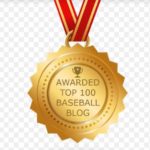 Baseball Roundtable is on the Feedspot list of the Top 100 Baseball Blogs. To see the full list, click here.
Baseball Roundtable is on the Feedspot list of the Top 100 Baseball Blogs. To see the full list, click here.
I tweet baseball @DavidBBRT
Follow/Like Baseball Roundtable’s Facebook Page here. More baseball commentary; blog post notifications; PRIZES.
Member: Society for American Baseball Research (SABR); Negro Leagues Baseball Museum; The Baseball Reliquary.
